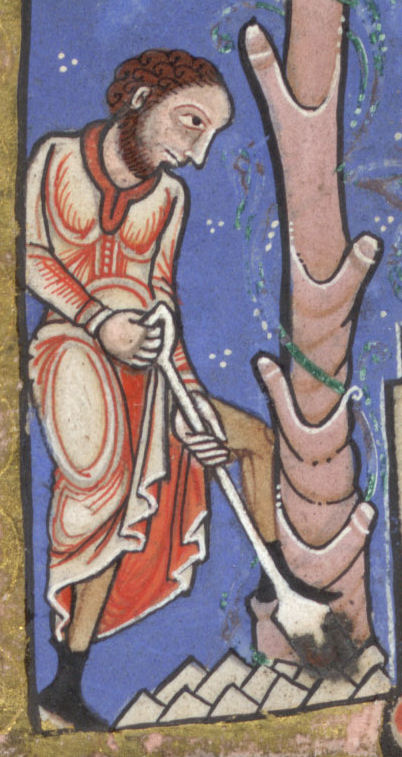A YOUNG monk went to the coffers of his monastery and stole away all that was there to be had. He had a conscience which provoked him and spoke to him that the wealth might be served better - and so departed the in holy calling, taking from the community all of their treasured savings.
No sooner had he left the confines of the monastery was he beset by a group of thieves, who asked of him to display that which he bore, straddled in bags, a weight on his horse.
Honesty was most valued in righteousness, and therefore the monk did speak truthfully when replying, "I have a parcel of much treasure, which I intend to distribute to the needy".
The thieves were suspicious of this, but took the monk to be a fool - "Well my friend, you have come to find the most needy! We are they, hand it over!"
"I believe you to be in need of counselling" the monk replied, "but how am I to know if you are in need of finance. You appear to have much fat around the girth, and much vigour in your step. I had not you in mind, when I did rob and plunder that from my brother monks."
"From one robber to another, let us eat together and discuss this a little further?" They asked. And so the monk was shuffled amongst them and made to take food, on this, his day of fast.
The twilight came and many a speech was bandied, until the black of night could mask their treacherous intent. The thieves fell upon the monk all at once and stifled him to his death. They then grabbed upon his bags and tore them to pieces to empty the contents- scythes and tongs, wheat-seed and millet, axe heads and nails, and texts about the mysteries of good farming.
They disgustedly hurled the monk's 'treasure' to the ground, stripping the baggage to pieces in vain attempt to uncover some jewels or some gold.
"Useless!" they cried, as they kicked the corpse; and then departed.
Oft times charity is so rebuked, even when it is offering that which is most needed. One must discern wisely, no matter how good the intent, as to who is best fitted to receive those treasures and make good use of them. The monk met with dishonesty unto himself and then with the thieves - the men who would not choose an honest living, and required of him so much more than he could offer. Even honesty may be turned corrupt, when so taken to be the very opposite. It is better to give of oneself, in word or in deed, sparingly, and withhold much initially, lest it be all lost to those who are unworthy, and shall by their evil, defeat the good intention that it may not find its way to those who would gracefully and gratefully receive it.
No comments:
Post a Comment